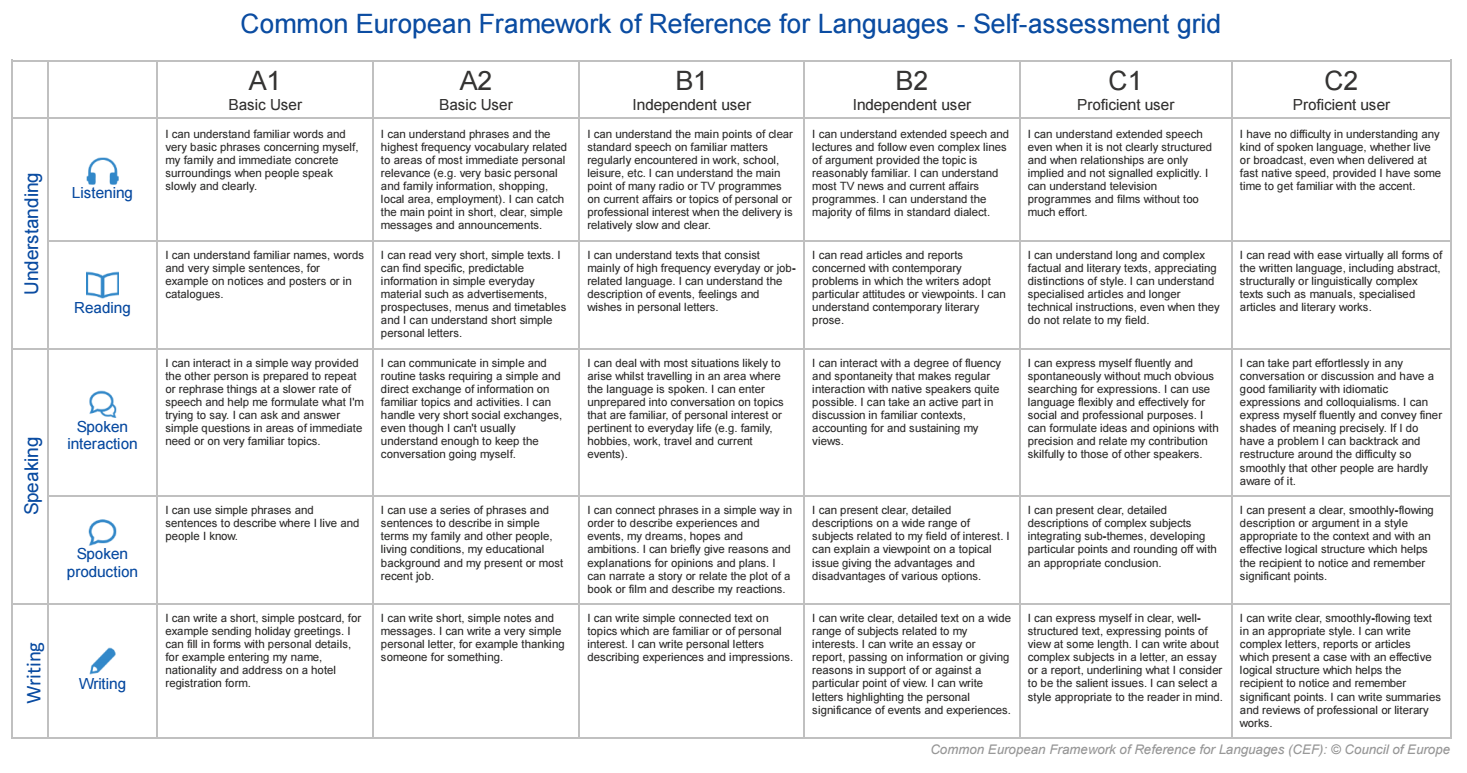| Written by: | Apple Languages |
| Date posted: | December 10, 2019 |
| Posted in: | Home / Information / |
Studying at a German university
 Famous for literature, engineering, and inventions, Germany has a reputation as a key European hub of education and culture. Studying in Germany gets more popular each year, but why is that? Why are young people going there, not just for a semester, but for an entire degree? Why do a quarter of international students want to work in Germany? And why do a fifth of international students in Germany want to continue their studies there?
Famous for literature, engineering, and inventions, Germany has a reputation as a key European hub of education and culture. Studying in Germany gets more popular each year, but why is that? Why are young people going there, not just for a semester, but for an entire degree? Why do a quarter of international students want to work in Germany? And why do a fifth of international students in Germany want to continue their studies there?
There are many factors that influence these decisions. Read to find out more, and to learn how we can help you study at the German university of your choice!
FIRSTLY: WHY GERMANY?
German universities are legion
The main reason so many students come to Germany to study is that there are just so many universities!
This relatively small country boasts more than 400 universities, together offering approximately 20,000 degrees in a wide range of subjects. Besides these, there are many organisations offering special work-experience programmes to participate in. These aren’t just internships; more like vocational courses, the emphasis is on putting the skills learned in class into practice in real-life scenarios. These programmes help students to gain valuable life skills and make connections with potential employers.
While other universities might be big names in Europe – like Cambridge, Oxford, or Paris’ PSL Research University – it’s to the German institutions that international students flock year on year. One reason for this is surely that, thanks to the huge number of universities available, you’re sure to find a course that fits your field of interest.
Quality and cost of living
In 2019, Mercer – the world’s largest consultancy firm – published its annual Quality of Living Survey. The survey compiles data on factors such as personal safety, environmental conditions, the cost of living, availability and quality of public services, political stability, education, and transportation, amongst others. This year, seven German cities in the Top 30! German cities consistently rank highly on this list – in fact, these seven have been ranked in the Top 30 every year since 2010. What’s more, out of Mercer’s Top 5 European Cities, three are German!

One thing students everywhere are concerned about is money. On the whole, Germany ranks very well for the cost of living, though of course, larger cities will be more pricey. Temporary lodging is widely available, and you won’t need to pay estate agent fees when looking for a place to stay. Though rental costs are on the rise (as with anywhere), energy-efficient appliances and building strategies mean that many modern homes don’t cost much to run.
A normal lunch costs between €5 and €10, while a meal in a restaurant costs between €10 and €20 per person. A weekly grocery shop (depending on your choice of store) costs around €50 per person. You’ll need to have health insurance as a non-resident, though EU and EEA members can use their EHIC card for medical treatment if needed.
All in all, this makes Germany a great place to live for students!
WHERE TO STUDY?
Good things come in small packages
 As mentioned before, there over 400 higher education facilities in Germany. Obviously those universities aren’t all in the big cities like Munich, Berlin, and Hamburg. Though these cities do indeed have multiple universities between them, the name and size of a city doesn’t say anything about the quality of tuition available there.
As mentioned before, there over 400 higher education facilities in Germany. Obviously those universities aren’t all in the big cities like Munich, Berlin, and Hamburg. Though these cities do indeed have multiple universities between them, the name and size of a city doesn’t say anything about the quality of tuition available there.
In fact, some of the best universities in the country can be found in the smallest cities and towns. Marburg, a delightful medieval town with just 80,000 inhabitants, has one of the country’s oldest universities: Philipps-Universität Marburg. The facility specialises in medicine and life sciences, and its psychology and geography departments have been awarded CHE Excellence Ranking. The western Rheinische Friedrich-Wilhelms-Universität in Bonn, a city of around 300,000, has been home to 10 Nobel Laureates, 4 Fields Medalists, and 12 Gottfried Wilhelm Leibniz Prize winners. Famous alumni include Friedrich Nietzsche, Karl Marx, and even Kaiser Wilhelm II!
Another thing you should think about is where you want to be. Not everyone is suited to big-city life – and by ‘big city’, we mean big city! Germany’s capital, Berlin, is a sprawling conurbation with a total population of nearly 10 million. The next largest city – Hamburg – has a metropolitan population of almost 8 million. If you feel most at home amongst the hustle and bustle, then such cities will obviously be ideal.
https://www.instagram.com/p/B1JrU1ho9yQ/?utm_source=ig_web_copy_link
If you prefer a smaller destination, consider Goettingen, Magdeburg, or Aachen. Still cities, these locations offer history, culture, and interesting attractions aplenty, and are all less than half the size of Germany’s biggest metropolises. What’s more, these cities have exceptional universities. Aachen’s Rheinisch-Westfälische Technische Hochschule (RWTH) University, for example, is one of the foremost technology schools in the country, and its graduates can expect higher starting salaries than those from almost any German university.
The most important thing to remember when choosing where to study is: what university will serve me best?
Tuition fees? What tuition fees?
One of the biggest pluses Germany offers is that tuition fees are incredibly low. In many cities, you’ll pay around €100 – €300 per semester (though there are exceptions to this – in Baden Württemberg, you pay around €1,500 a semester!). Compared to tuition fees all over the world, that is an absolutely unbeatable price. In the UK, you can easily double the cost of Baden Württemberg, and the cost of tuition in the US is often a lot higher still.
With your student ID card, you will also get discounts in cinemas and libraries, as well as low-cost entry to events happening throughout the year. Your ID card will also allow you to take the bus, tram, or subway for free throughout your studies.
HOW TO STUDY?
University entry requirements
 In order to study in Germany, you’ll need to take the TestDaF (Test Deutsch als Fremdsprache). This test assesses foreign students’ German-language proficiency and is similar to other ability tests like TOEFL or IELTS.
In order to study in Germany, you’ll need to take the TestDaF (Test Deutsch als Fremdsprache). This test assesses foreign students’ German-language proficiency and is similar to other ability tests like TOEFL or IELTS.
Though some courses are available in English and other languages, the majority of degrees offered by German universities are given in German. Therefore, anyone wanting to study at a German university will need to exhibit B2 or higher language ability before being accepted on their chosen course. The test covers speaking, listening, reading, and writing skills, and it’s not just useful for university – most businesses will accept a TestDaF certificate as proof of language proficiency, which is ideal if you want to work alongside your studies.
You can read about the TestDaF exam on our website, and if you’re unfamiliar with the language ability grading system – the Common European Frame of References for Languages (CEFRL) – you can learn more here: CEFRL Wikipedia entry.
An important language test can sound daunting, but it needn’t be! We offer preparatory courses for the TestDaF which will help to get you ready for the next big stage of your life. Our language schools are also able to help you arrange your exam after your course has finished.
Exam preparation courses
Apple Languages has several German schools offering TestDaF Exam Preparation courses. These courses focus specifically on improving your language skills to help you pass the TestDaF. Many Preparation courses follow a format of core Intensive lessons plus specialised mini-group or private lessons. Your core lessons are designed to expand and strengthen your general language skills, while your specialised lessons will cover exam topics. This format perfectly mixes the social benefits of group tuition with the personalised tuition offered by mini-group and private classes. In your exam-specific lessons, you’ll study with other students with the same goal as you, which will help you to stay motivated while you learn.
Besides the German classes, you’ll have the opportunity to learn more about German history and culture on our schools’ activity schedule. Activities vary from school to school but usually include things like walking tours of your location of study, watching German films, visiting local attractions, tasting local food and drink, and visiting towns and cities near the school. These activities aren’t just for fun – they’ll also help you avoid a culture shock in your first days at university.
View this post on Instagram
Two key locations these courses are available are Berlin and Hamburg, which are perfect for those who love big-city life. If you plan to attend university in one of these locations, you should book your Preparation course there, too! This will help you familiarise yourself with the location and learn more about daily life in the city. For those who prefer the charm of smaller cities, we also offer Exam Preparation courses in Munster, Freiburg, and Radolfzell. These locations are perfect if you don’t want to be right in the centre of mass tourism but still want an authentic German experience.
Study time
We are often asked how long it takes to learn German. This is a far-reaching question that depends on multiple factors, such as how much language practice you get during your tuition and how much extra-curricular time you can dedicate to your studies. Your study time will also depend on very subjective things such as how you learn and your overall propensity for learning languages.
That being said, however, there is a general pattern: most students take an average of 10 – 12 weeks to progress by one level in German. While speakers of similar languages like Dutch, Swedish, and Norwegian may find certain aspects easier than others, the structure and grammar of German is notoriously difficult for many students. Undoubtedly the best way to learn a language is to be surrounded by it and to use it as much as possible. Therefore, an immersive course at one of our German schools – taught by highly qualified native teachers – is the best preparation you can give yourself!
 There are 6 levels to the CEFRL (not including complete beginners), so the time you’ll need to study for will vary based on your starting ability level. The above grid gives describes the skills needed to pass each level of the CEFRL.
There are 6 levels to the CEFRL (not including complete beginners), so the time you’ll need to study for will vary based on your starting ability level. The above grid gives describes the skills needed to pass each level of the CEFRL.
There are set dates for the TestDaF examination each year, and set institutions where you can take the test. When thinking about sitting this exam, you’ll need to bear in mind your desired test date and how long you think you’ll need to prepare. A full list of available test dates, along with further information about the exam itself, is given on the TestDaF Institute’s website.
The DAAD have got your back
Making the step to move to a different country can be overwhelming, and even the thought of it sounds scary! What with the travel paperwork, the organisation prior to actually getting there, and the journey itself, you’d be forgiven for thinking it’s just too much for a single person to do.
Count yourself lucky, however, because you are not alone. The German Academic Exchange Service (DAAD) is there for you and can give you advice on where to start. They can help you with completing the necessary paperwork, finding accommodation, and connecting with other people. They offer over 150 scholarships, which are easy to find on their website and could help with funding your tuition. The DAAD also has a side-job finder which displays a range of options for you to earn some extra money while you study.
You needn’t be overwhelmed; with the help of the DAAD, you can manage the first steps of moving to another country.
WHAT NOW?
If you want to study at a German university and need to get your language skills up to scratch, contact us now and ask about our general German language courses or our more specific Exam Preparation courses!
We look forward to hearing from you 😊

Blog Categories
- Activities (4)
- Yoga (1)
- Christmas Courses (17)
- Food (21)
- Recipes (4)
- Information (83)
- Instagram (11)
- Language fun (11)
- My travel journal (15)
- Sample Programmes (2)
- Video Guides (11)
- Locations (430)
- America (4)
- Argentina (15)
- Bariloche (4)
- Buenos Aires (8)
- Cordoba (2)
- Mendoza (1)
- Australia (1)
- Sydney (1)
- Austria (4)
- Brazil (5)
- Maceio (2)
- Salvador da Bahia (2)
- Sao Paulo (1)
- Canada (8)
- Chile (4)
- China (7)
- Colombia (2)
- Costa Rica (8)
- Flamingo Beach (5)
- Monteverde (1)
- Cuba (8)
- Havana (3)
- Santiago de Cuba (3)
- Trinidad (2)
- Czech Republic (2)
- Prague (2)
- Dominican Republic (1)
- Santo Domingo (1)
- Ecuador (3)
- Egypt (2)
- Cairo (2)
- England (23)
- Bournemouth (1)
- Brighton (1)
- Bristol (1)
- Cambridge (2)
- Liverpool (9)
- London (3)
- Manchester (2)
- Oxford (1)
- Portsmouth (1)
- France (53)
- Germany (49)
- Greece (4)
- Guadeloupe (3)
- Guatemala (2)
- Antigua (2)
- Ireland (4)
- Italy (78)
- Japan (3)
- Latvia (1)
- Riga (1)
- Malta (3)
- Mexico (10)
- Cuernavaca (1)
- Guadalajara (1)
- Guanajuato (1)
- Mexico City (1)
- Playa del Carmen (6)
- Morocco (1)
- Rabat (1)
- Netherlands (4)
- Panama (1)
- Bocas del Toro (1)
- Boquete (1)
- Peru (5)
- Poland (2)
- Portugal (9)
- Russia (6)
- Moscow (2)
- St Petersburg (2)
- Scotland (2)
- Edinburgh (2)
- Spain (89)
- Alicante (1)
- Barcelona (13)
- Bilbao (1)
- Cadiz (1)
- Costa Adeje (1)
- El Puerto (3)
- Granada (5)
- Ibiza (1)
- Lanzarote (1)
- Madrid (6)
- Malaga (15)
- Marbella (1)
- Murcia (1)
- Nerja (4)
- Pamplona (1)
- Puerto de la Cruz (3)
- Salamanca (3)
- San Sebastian (7)
- Santiago de Compostela (2)
- Seville (5)
- Tenerife (6)
- Valencia (9)
- Vejer de la Frontera (2)
- Sweden (2)
- Stockholm (1)
- Switzerland (2)
- Montreux (1)
- Ukraine (2)
- Kiev (2)
- United Arab Emirates (1)
- Dubai (1)
- Uruguay (1)
- Montevideo (1)
- New Schools (14)










 Company Number: 08311373
Company Number: 08311373